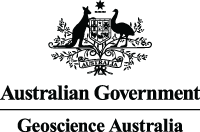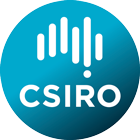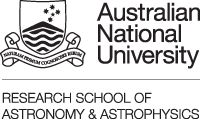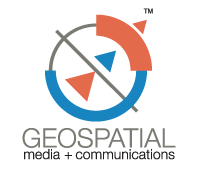MEDIA RELEASE
CSIRO to transform Australia’s Earth observation capabilities for a bigger and better future
Scientists in Melbourne this week are discussing how to keep up as worldwide, Earth observation moves towards gathering even more detail from the surface of the planet, and at a much faster rate than currently exists.
Earth observations from space are currently contributing more than $3.3 billion to Australia’s gross domestic product (GDP). There are now more than 100 operational programs in Australia relying on Earth observations, particularly from the environmental, social, regulatory and industrial sectors. The contribution of these programs to the GDP is expected to grow up to $12 billion by 2030.
“Worldwide, more than 400 earth observation sensors are planned for the next 15 years,” says Professor Arnold Dekker, Director of CSIRO’s new Earth Observation Informatics Transformational Capability Platform (TCP).
Australia is exceptionally skilled at analysing Earth observations from space and putting this to practical use. New developments in gathering data are opening up a range of new capabilities in Earth observations, in moving towards ‘bigger and better’ data. However, with this comes the challenge of how existing instruments will acquire, process and integrate these much larger sets and variables of data.
Professor Dekker anticipates the new Earth Observation Informatics TCP will enable the CSIRO to address these future challenges and to develop innovative capabilities to serve the nation’s future information needs.
“CSIRO is leading the way in terms of developing future capabilities for Earth observation science,” he says.
Earth observation represents the gathering of information about Earth's physical, chemical and biological systems via a range of sources. Data may be acquired from satellites, airborne platforms or direct measurements from the land, water and atmosphere.
As one of Australia’s leading experts on Earth observation of inland, estuarine, coastal and benthic ecosystems, Professor Dekker says “the Earth Observation Informatics TCP provides the opportunity to develop international cooperation and will lead to opportunities for significant co-investment in the future with government and industry.”
Professor Dekker says the research and development conducted by CSIRO is a key, underpinning element of Australia’s space capabilities, which the Earth Observation Informatics TCP will support and grow through its sponsorship of various activities.
“What this platform does is provide projects in areas of national and international engagement; Earth observation sensor calibration and validation using innovative approaches; International next-generation satellite data access and evaluation; computational and informatics capabilities to deal with the petabyte challenge for complex datasets and model-data fusion approaches as well as transformational science applications.”
The initiative will also build on existing CSIRO investment in the National Collaborative Research Infrastructure Strategy – Education Investment Fund (NCRIS/EIF) research infrastructure including the Terrestrial Ecosystem Research Network (TERN), the AusCover facility and the Integrated Marine Observing System (IMOS) satellite remote sensing facility.
The TCP has provisionally funded 14 projects aimed at achieving significant outcomes within the next few months. Furthermore, a number of workshops are being organised to establish priorities for future research and transformational capability development.
Professor Dekker is attending the International Geoscience and Remote Sensing Symposium, in Melbourne, Australia until Friday 26 July. With more than 1,300 delegates from 66 countries, this meeting represents the largest gathering of remote sensing and geoscientists in the world. Within this year’s theme of ‘Building a Sustainable Earth Through Remote Sensing’, meteorology, forestry, agriculture, emergency response, biodiversity, water management and the oceans are just a few examples of research focuses being discussed.
Media contacts
Melissa Lyne, Melissa.lyne@gmail.com, ph: +61 415 514 328
Leane Regan, Communications Manager, CSIRO Land and Water, Leane.Regan@csiro.au, + 61 428 149 151


 IGARSS13
IGARSS13 @IGARSS2013
@IGARSS2013













